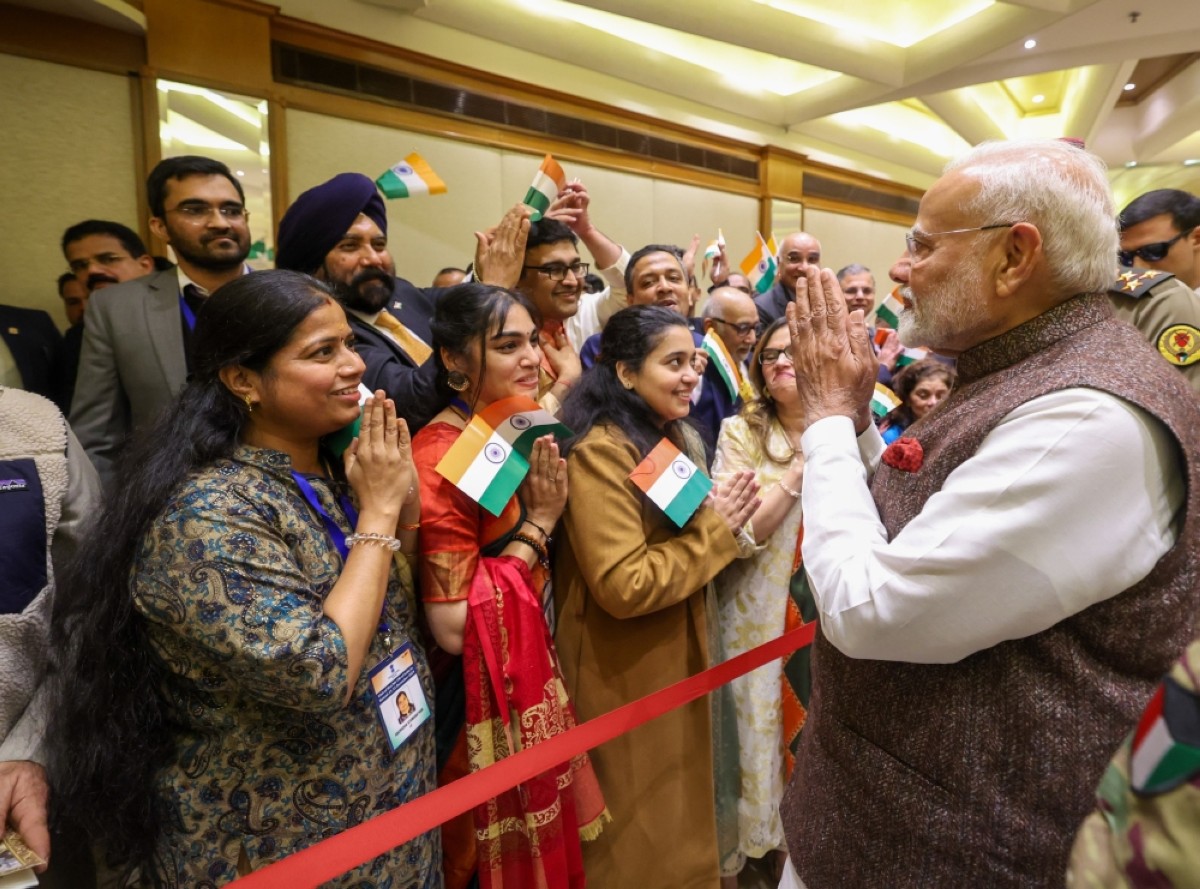super ace casino philippines
2025-01-13 2025 European Cup super ace casino philippines
News
MoU signed on youth training on Japanese language, culture LAHORE : Punjab Skills Development Fund (PSDF) has signed a historic agreement with Hazza Institute of Technology (HAZZA) and Japan-Pakistan Innovative Institute (JPII) to establish state-of-the-art Japanese language and cultural training centres in Punjab, providing a gateway to global opportunities for Pakistani youth in Japan. This significant step has been taken for the socio-economic development through global upskilling initiatives under the leadership of Punjab CM. This initiative aligns with CM’s mission to empower the youth of Punjab by equipping them with internationally competitive skills and creating pathways for employment in high-demand sectors abroad, including information technology, logistics, elderly care, hospitality, and agriculture. The collaboration includes several key highlights such as the establishment of six Japanese Language and Cultural Training Centres in Punjab. Through this initiative, 2,000 youth will receive training on the Japanese language, culture, and professional standards.
legit super ace casino real money
。
After delay, Trump signs agreement with Biden White House to begin formal transition handoffNVIDIA Chart: The Future of Gaming Revolution?
Ukrainian President Volodymyr Zelenskiy said Defense Minister Rustem Umerov's talks in South Korea on November 27 focused on cooperation on the security of both Ukraine and South Korea in light of the deployment of North Korean forces in Russia’s war against Ukraine. Zelenskiy said Umerov went to Seoul at his instruction to discuss all aspects of North Korea’s involvement in the war “and the things we can do together to defend our nations and to secure our regions together.” Umerov said earlier that he had discussed joint steps to strengthen security and stability with South Korean President Yoon Suk Yeol while in Seoul. Umerov also met with South Korea’s defense minister and national-security adviser. "We believe that our arguments about the need to increase cooperation between Ukraine and the Republic of Korea will lead to a tangible strengthening of security for our peoples and regions," Umerov said on Telegram. Umerov said he raised the presence of the North Korean troops and the North Korean military's "active" support for energy infrastructure attacks on Ukraine. For South Korea, the deployment of the North Korean troops poses a serious threat because they are gaining combat experience, which could create additional security challenges, he said. A statement issued by Yoon’s office does not say whether the parties discussed the possibility of Seoul supplying weapons to Ukraine. Ukraine has previously asked Seoul for weapons, and South Korea has said it could consider such aid, depending on what Russia and North Korea do. Zelenskiy also said in his nightly address that decisions made in July at the NATO summit in Washington on air defense and other supplies to the front line “have not yet been fully implemented...and this, of course, has had a significant impact on our people’s motivation and morale.” The recent authorization of long-range strikes on military targets in Russia “has been helpful, but the pressure on Russia must be maintained and increased at various levels to make Russia feel what war really is,” Zelenskiy said. Russian forces have been making steady gains along the front line as Kyiv's troops battle a larger and better equipped enemy. Zelenskiy did not mention a news report that President Joe Biden's administration is urging Ukraine to quickly increase the size of its military by drafting more troops. A senior Biden administration official, who spoke on the condition of anonymity, was quoted earlier on November 27 by the Associated Press as saying that the outgoing administration wants Ukraine to lower the mobilization age to 18 from 25 to help expand the pool of fighting-age men. The official said “the pure math” of Ukraine's situation now is that it needs more troops in the fight, according to the AP. The official said the Ukrainians believe they need about 160,000 additional troops, but the U.S. administration believes they probably will need more than that. Calin Georgescu, the pro-Russian far-right independent candidate who scored a shock victory in the first round of Romania's presidential election, has denied that he wants the country out of NATO and the European Union. Georgescu, who garnered nearly 23 percent of the vote in the November 24 poll, will face off against center-right Elena Lasconi, a staunch Euro-Atlanticist, in the December 8 runoff after both pushed ahead of favorite leftist Prime Minister Marcel Ciolacu. Without the backing of a party, Georgescu's campaign relied heavily on social media platform TikTok, where his account had 1.6 million likes and where he posted videos of himself attending church, doing judo, running on a track, and speaking on podcasts. He has described NATO as "the world's weakest alliance" and the alliance's ballistic missile-defense shield in Deveselu, southern Romania, as a "shame of diplomacy," claiming the military alliance would not defend any of its members in case of a Russian attack. Instead, he recommended "Russian wisdom" as Romania's best path forward and launched a TikTok campaign calling for an end to Romanian aid for Ukraine. Under incumbent Klaus Iohannis, Romania has been one of Kyiv's staunchest allies. But facing a public backlash as hundreds of mostly young people took to the streets of Bucharest and other big Romanian cities chanting, "No Putin, no fear, Europe is our mother," and "Young people ask you not to vote for a dictator," Georgescu denied in a YouTube video on November 26 that he wanted Romania out of the Euro-Atlantic structures. "I do not want out of NATO, I do not want out of the European Union," Georgescu said, standing side-by-side with his wife, adding, "but I do want us to stand firm, not to kneel there, not to accept everything, to do everything in our national interest." He went on to say that he wanted peace, adding, "We cannot get into other peoples' wars for their interests that cause us prejudice," again alluding to Romania's support for Ukraine. For the December 8 runoff, Georgescu has rallied the support of far-right pro-Russia AUR party of which he used to be a member until 2022 and whose leader, George Simion, garnered almost 14 percent in the first round, while the center-right liberals threw their weight behind Lasconi, a former TV reporter and mayor of the small southern Romanian city of Campulung Muscel. But first, Romanians will elect a new parliament on December 1, with Ciolacu's Social Democratic Party, the centrist National Liberal Party, and Lasconi's Save Romania Union favorite to win most of the 332 seats in the lower Deputy Chamber and 137 mandates in the upper chamber, the Senate. U.S. President-elect Donald Trump on November 27 tapped Keith Kellogg, a retired army lieutenant general who has long served as a top adviser to Trump on defense issues, as his nominee to be special envoy for Ukraine and Russia. "Keith has led a distinguished Military and Business career, including serving in highly sensitive National Security roles in my first Administration," Trump said on social media. Kellogg "was with me right from the beginning," Trump said on Truth Social. "Together, we will secure PEACE THROUGH STRENGTH, and Make America, and the World, SAFE AGAIN!" Kellogg's nomination comes after Trump's criticism during the 2024 presidential campaign of the billions of dollars that the United States has poured into Ukraine since Russia launched its full-scale invasion in February 2022. Trump also said he could end the war within 24 hours of retaking the White House, a statement that has been interpreted as meaning that Ukraine would have to surrender territory that Russia now occupies. Kellogg has already put forth a plan for ending the war that involves freezing the battle lines where they are and forcing Kyiv and Moscow to the negotiating table, Reuters reported in June. According to Reuters, Kellogg has advocated telling the Ukrainians that if they don't come to the negotiating table, U.S. support would dry up, while telling Russian President Vladimir Putin that if he doesn't come to the table, the United States would give the Ukrainians "everything they need to kill you in the field." NATO membership for Ukraine would be off the table as part of the incentive for Russia to come along, while putting it back on would be punishment for holding back. Kellogg, 80, earlier this year wrote that "bringing the Russia-Ukraine war to a close will require strong America First leadership to deliver a peace deal and immediately end the hostilities between the two warring parties." He made the statements in a research paper written for the America First Policy Institute, a think tank formed after Trump left office in 2021. "The United States would continue to arm Ukraine and strengthen its defenses to ensure Russia will make no further advances and will not attack again after a cease-fire or peace agreement," the document said. "Future American military aid, however, will require Ukraine to participate in peace talks with Russia." Kellogg served in several positions during Trump's first term, including as chief of staff on Trump's national security council and national-security adviser to then-Vice President Mike Pence. Russian Deputy Ambassador Dmitry Polyanskiy told a UN Security Council meeting that any decision by Trump's incoming administration to cut support for Ukraine would be a "death sentence" for the Ukrainian Army. "Even if we're to lay to one side the prediction that Donald Trump will cut assistance to Ukraine, which for the Ukrainian Army would essentially be a death sentence, it is becoming clearer that he and his team will, in any case, conduct an audit of the assistance provided to Kyiv," Polyanskiy said. Polyanskiy said Russia had repeatedly offered to negotiate, but Ukraine and its Western backers have favored escalation. Ukraine has consistently rejected Russian offers to negotiate because Moscow's conditions, including accepting Russia's occupation of Ukrainian territory, have been unacceptable to Kyiv. The Russian diplomat also accused the Biden administration of trying through its increased support to Ukraine to create a "mess, both in Russia and with the new team in the White House." He warned the decision by the Biden administration and its European allies to authorize the Ukrainian military to use long-range missiles against targets inside Russia had "placed the world on the brink of a global nuclear conflict" and said Russia would respond decisively. "I will be frank, we believe that it is our right to use our weapons against the military facilities of those countries who allow the use of weapons against our facilities." Speaking earlier at the same Security Council session, UN Assistant Secretary-General Miroslav Jenca highlighted recent Russian long-range missile strikes against Ukraine and called the use of ballistic missiles and related threats against Ukraine "a very dangerous, escalatory development." U.S. Deputy Ambassador Robert Wood told the session Washington would "continue to surge security assistance to Ukraine to strengthen its capabilities, including air defense, and put Ukraine in the best possible position on the battlefield." Russian President Vladimir Putin has been warmly received in Kazakhstan, where he and Kazakh President Qasym-Zhomart Toqaev discussed boosting energy and industry ties. Putin arrived in Astana on a state visit on November 27 and was greeted by Toqaev with a handshake, according to images released on social media. Toqaev said he had "carefully read" Putin’s commentary published in state newspaper Kazakhstanskaya Pravda ahead of the visit and said he had published his own commentary on the state of the relationship between Moscow and Astana in the Russian media. "I think that we have very thoroughly, as if in unison, outlined our approaches to the development of cooperation aimed at the future," Toqaev said. He emphasized in his article that Kazakhstan "remains a reliable strategic partner and ally of Russia in this very difficult time," Toqaev's press service quoted Toqaev as saying. Putin thanked Toqaev "for his careful attitude toward the Russian language," a reference to the lower house of parliament's ratification of an agreement to create the International Organization for the Russian Language a few days before Putin's arrival. Kazakhstan has tried to distance itself from Moscow's war in Ukraine but remains highly dependent on Russia for exporting oil to Western markets and for imports of food, electricity, and other products. Underscoring that more than 80 percent of Kazakhstan's oil is exported to foreign markets via Russia, Putin said he and Toqaev always focus on "a specific result" in their talks. "Our countries are...constructively cooperating in the oil and gas sector," Putin wrote in his article, which was also featured in the Kremlin's website. Kremlin foreign policy aide Yuri Ushakov told journalists on November 26 that Putin and Toqaev would sign a protocol on extending an agreement on oil supplies to Kazakhstan. He did not give details. The two leaders said after their meeting that they had discussed plans to increase the transit through Kazakhstan of Russian natural gas to Uzbekistan and Kyrgyzstan, part of Moscow's pivot away from European energy markets. They also said they talked about joint projects in hydroelectric power, car tires, and fertilizers and other areas. Putin said in his article that Russia's state nuclear corporation Rosatom was "ready for new large-scale projects." The company already is involved in some projects in Kazakhstan, which in October voted in favor of constructing its first nuclear power plant. Neither leader mentioned the nuclear project after their talks. Toqaev said he had raised the issue of agricultural trade following a Russian ban on imports of grain, fruit, and other farm products from Kazakhstan in October. Moscow imposed the ban after Kazakhstan barred Russian wheat imports in August to protect its producers. "Our countries should not compete on the Eurasian Economic Union market or foreign markets," Toqaev said, referring to agricultural exports within and outside a Moscow-led post-Soviet trade bloc. Nordic-Baltic countries and Poland have pledged to step up support for Ukraine, including making more ammunition available to strengthen deterrence and defense against hybrid attacks . The leaders of Denmark, Estonia, Finland, Latvia, Norway, Poland, and Sweden, who met near Stockholm on November 27, also said they were ready to step up sanctions against Russia and backers of its Ukraine invasion and discussed an investigation into the severing of undersea communication cables earlier this month in the Baltic Sea. "Together with our allies, we are committed to strengthening our deterrence, and defense, including resilience, against conventional as well as hybrid attacks, and to expanding sanctions against Russia as well as against those who enable Russia's aggression," the leaders said a statement. The leaders met for talks covering transatlantic relations, regional security cooperation, and a common policy on the war in Ukraine. The meeting was the first of the Nordic-Baltic heads of government since 2017. Poland attended for the first time. Ahead of the meeting Polish Prime Minister Donald Tusk proposed joint monitoring of the Baltic Sea by the navies of the Baltic states following damage to two undersea communication cables that is being investigated as a hybrid attack. "Baltic air policing already exists for the airspace over the Baltic Sea," Tusk said. "I will convince our partners of the necessity to immediately create an analogous formula for the control and security of the Baltic Sea waters, a naval surveillance," he added. The underwater cables -- one linking Finland and Germany and the other connecting Sweden to Lithuania -- were damaged on November 17-18, prompting suspicions of sabotage. Sweden, Germany, and Lithuania have all launched investigations, but the cause of the damage is still unknown. Finnish police have said they believe the incident was caused by a Chinese ship dragging its anchor, and Swedish investigators have focused on the Chinese cargo ship Yi Peng 3, which is thought to have passed both locations at the times of the cable breaks. The ship now sits idle in international waters but inside Denmark's exclusive economic zone. Sweden has asked the vessel to return to Swedish waters to help facilitate the investigation, Prime Minister Ulf Kristersson said on November 26, but he stressed he was not making any accusations. Kristersson told a press conference he was hopeful China would respond positively to the request to move the ship to Swedish waters. "From the Swedish side we have had contact with the ship and contact with China and said that we want the ship to move towards Swedish waters," Kristersson said. A Chinese Foreign Ministry spokeswoman said communications with Sweden and other relevant parties had been "unobstructed." Mao Ning said at a regular news briefing on November 27 that China has shown "consistent support" in working with other countries to maintain the security of international undersea cables and other infrastructure. Yi Peng 3 left the Russian port of Ust-Luga on November 15. Russia last week said suggestions it had anything to do with the breaches were "absurd." The Wall Street Journal reported on November 27 that the ship has been surrounded by European warships in international waters for a week. Investigators suspect the crew of the Yi Peng 3, which is loaded with Russian fertilizer, deliberately severed the cables by dragging its anchor for more than 160 kilometers, the newspaper reported. The probe centers on whether the captain of the ship was induced by Russian intelligence to carry out the sabotage, the report said. Georgia's billionaire political power broker Bidzina Ivanishvili has introduced a Euroskeptic former soccer player as his ruling party's nominee for a disputed presidential vote next month, despite mounting constitutional disagreements and a post-parliamentary election boycott in the Caucasus nation. The nomination of Mikheil Kavelashvili came hours into a new legislative session dominated by the ruling Georgian Dream party -- which Ivanishvili founded -- that the current president, Salome Zurabishvili, contends is unconstitutional because of alleged flaws in last month's parliamentary vote. The fractured opposition disputes the results and sought to nullify the seating of legislators in order to spark a constitutional impasse. The Georgian Dream claimed victory with 88 seats in the 150-seat parliament after voting on October 26, suggesting it will try to steamroll opposition to put the fiery 53-year-old former international footballer and right-wing populist lawmaker Kavelashvili in the presidency. Kavelashvili is one of the founders of a 2-year-old, anti-Western offshoot of the Georgian Dream party called People's Power. His party introduced a draft law on "foreign agents" in 2023 that sparked massive protests before it was withdrawn and replaced earlier this year with a slightly reworded bill to curb "foreign influence" at nongovernment groups. Amid this year's protests against the polarizing so-called Russian law, Kavelashvili invoked Georgia's "civil war started in the '90s" to accuse its opponents -- including current Georgian international soccer great Khvicha Kvaratskhelia -- of stoking violence. The law was eventually enacted when lawmakers overrode Zurabishvili's veto. The looming presidential vote is the country's first under a 2017 change from a direct to an indirect vote by an electoral college for the head of state, a largely ceremonial post that Zurabishvili has used to oppose what Georgian critics decry as a "Russian law." Zurabishvili has called the legislature that emerged from the October elections "unconstitutional" and appealed to the Constitutional Court for their annulment over alleged Russian influence and fraud. The European Union has stalled Tbilisi's bid to join the bloc, while the United States has vowed to "revise" its relations with Georgia over the law and other recent moves by the Georgian Dream-led government. Zurabishvili has accused the ruling party of "capturing" Georgia and diverting it from its pro-EU path, a goal that is enshrined in the constitution and supported by an overwhelming majority of around 80 percent of Georgians, and toward Russia instead. Georgian Dream lawmakers voted on November 26 to hold the presidential election on December 14, a move some experts say is illegal until the courts rule on Zurabishvili's and other postelection challenges. Ivanishvili, who made his fortune in Russia and is the influential honorary chairman of Georgian Dream, called Kavelashvili "the best embodiment of a Georgian man" when he introduced him as the party's presidential choice the same day. In a pointed shot at Zurabishvili, who has fallen out dramatically with Georgian Dream since that party nominated her to the presidency in 2018, Ivanishvili said Kavelashvili would "fully restore the dignity temporarily taken from the institution of the presidency." In accepting the disputed nomination, Kavelashvili accused Zurabishvili of having "insulted and neglected" the Georgian Constitution and that she "continues to violate it today." Detractors have pointed out Kavelashvili's apparent lack of a university degree, or at least the absence of any information about it in his official parliamentary profile. In 2015, Kavelashvili filed a lawsuit seeking to cancel a provision of the national soccer federation's guidelines requiring presidents of that body to have a university degree. A new criminal trial against imprisoned former Moscow municipal deputy Aleksei Gorinov, known for his outspoken criticism of Russia's war against Ukraine, began at a Russian military court on November 27. Before the hearing started, Gorinov displayed a hand-drawn message on piece of paper that said: "Stop killing. Let's stop the war." When court bailiffs attempted to confiscate the makeshift poster, Gorinov refused to hand it over, saying that he was not breaking any regulations and insisting the bailiffs must document the seizure formally. Asked about his health before the session, Gorinov revealed ongoing struggles with illness. "There's no treatment available," he said, adding that he relied on psychotherapy. "I don’t understand why they’re targeting an ordinary person like me." His lawyer, Alyona Savelyeva, said that Gorinov was suffering from bronchitis, which makes his transportation to court and time spent in cold rooms particularly difficult. Gorinov, 63, was sentenced in July 2022 to seven years in prison for spreading "fake news" about the Russian military because of his public opposition to Russia's full-scale invasion of neighboring Ukraine. In October 2023, the authorities opened a new case against him, accusing him of "justifying terrorism" based on alleged conversations with fellow inmates about Ukraine's Azov Regiment. During the hearing, Gorinov firmly denied any ties to terrorism. "I am far from any ideology of terrorism," he said. "I am a committed internationalist and an opponent of war and violence, as I have consistently stated publicly throughout my life." Gorinov's initial conviction stemmed from an anti-war speech he delivered at a city council meeting in Moscow's Krasnoselsky district. He was the first person sentenced under Russia's new law criminalizing "fake news" about the military, introduced after Russia launched its full-scale invasion of Ukraine in February 2022. Earlier this year, Gorinov was transferred from a detention center in Moscow to a prison in the Vladimir region. He complained of harsh conditions, including solitary confinement in a cold cell without a mattress, blanket, or access to hot water. Dmitry Muratov, editor in chief of the Novaya gazeta newspaper and a Nobel Peace Prize laureate, appealed to the International Committee of the Red Cross for an urgent inspection of the conditions Gorinov was being held in. Following this, local officials and prosecutors inspected the facility, resulting in Gorinov's relocation to a slightly improved cell with a window that opens and closes, a functioning toilet, and reportedly no mice. Gorinov has been repeatedly subjected to punitive measures, including spending extended periods in solitary confinement. In spring 2023, he spent 48 consecutive days in a punishment cell, a treatment often reported by other political prisoners in Russia. The Russian state-run Channel One television company in Germany said the government has ordered two of its journalists to leave the country, prompting Moscow to revoke the accreditations of two correspondents from German media group ARD. The affected Channel One journalists, correspondent Ivan Blagoi and cameraman Dmitry Volkov, said they were informed that they must depart Germany by mid-December. The media outlet confirmed the expulsions on social media on November 27. Blagoi said the decision was justified by the German authorities as being "in the interest of the security of the Federal Republic of Germany." Russian Foreign Ministry spokeswoman Maria Zakharova told a news conference on November 27 that Moscow had revoked the accreditations of two ARD correspondents, saying, "we have to take tit-for-tat measures." She gave no further details. The expulsions mark the latest in a series of escalating tensions between Russia and Western countries over the role of Russian state media. Since Moscow launched the full-scale invasion of Ukraine in February 2022, Russian broadcasters have faced bans, restrictions on access to social media platforms, and accusations of disseminating propaganda. Channel One, a Russian-language broadcaster popular among older audiences in Russia and some other former Soviet republics, has come under scrutiny for its coverage. ARD is an association of German public broadcasters. German authorities reportedly accused the outlet of spreading propaganda and disinformation among the Russian-speaking diaspora in Germany, which numbers in the hundreds of thousands. The accusations include claims the channel justifies the Russian invasion of Ukraine and portrays Ukraine's defenders as "Nazis." The expulsions follows a report aired by Blagoi on November 24 regarding Nikolaj Gajduk, a German citizen detained by Russia's Federal Security Service in October. The report alleged that Western intelligence agencies, including the CIA, were involved in Gajduk's alleged actions ordered by Ukrainian special services. The timing of the decision to expel the journalists, shortly after this broadcast, raises questions about the broader geopolitical dimensions of the incident. Russia has consistently retaliated against measures targeting its state media. Following Germany's 2022 ban on RT, a Kremlin-backed broadcaster, Moscow shut down the Deutsche Welle bureau in Russia and revoked accreditations for German journalists. Similar restrictions have been imposed on other foreign correspondents, reflecting a tit-for-tat approach. The German government has not publicly detailed the reasons behind its decision, but the move underscores the increasing focus on disinformation as a national security threat. Channel One claimed its journalists had complied with German laws and accused the authorities of using vague accusations to stifle alternative narratives. Germany has a large number of residents who have emigrated from the former Soviet Union, who are mostly ethnic Germans from Kazakhstan and Russia. A Russian drone strike on Kyiv early on November 27 wounded two people and damaged a nonresidential building, the mayor of Ukraine's capital, Vitali Klitschko, said on his Telegram channel. Ukraine's air force, meanwhile, said that Russia launched 89 drones at eight regions -- Kyiv, Chernihiv, Sumy, Kharkiv, Poltava, Zhytomyr, Khmelnytskiy, and Mykolayiv. Ukrainian air defenses shot down 36 of the attacking drones, while 48 were lost due to the jamming of their navigation systems by electronic means, the air force said on Telegram. Five other drones left the territory of Ukraine in the direction of Belarus and back to Russia, it said. Russia's Defense Ministry said separately that its air defenses shot down 10 Ukrainian drones over the Rostov region and two off the Black Sea port of Sevastopol. To read the original story by RFE/RL's Ukrainian Service, click here . Police arrested nearly 1,000 supporters of Imran Khan as security forces cracked down on a massive protest in Islamabad demanding the release of the jailed former Pakistani prime minister, police said on November 27. Islamabad police chief Syed Ali Nasir Rizvi told a news conference that 19 Afghan citizens were among the 954 protesters arrested by Pakistani security forces over the past three days. The protesters, who had marched for days toward Islamabad from Khan's stronghold of Khyber Pakhtunkhwa Province in the northwest, were dispersed and the capital cleared during a sweeping midnight raid by Pakistani security forces. Rizvi said police used only nonlethal means during the overnight raid. Khan's Pakistan Tehrik-e Insaf (PTI) party issued a statement on X on November 27 saying the protest, during which at least six people -- four members of the security forces and two protesters -- had been killed, was being suspended "for the time being" and accused the government of brutality. PTI spokesman Sheikh Waqas Akram confirmed the suspension of the protest. Party officials said Khan's wife, Bushra Bibi, and Khyber Pakhtunkhwa Chief Minister Ali Amin Gandapur, a key Khan ally, had returned "safely" to the province from Islamabad following the security forces' crackdown. Interior Minister Mohsin Naqvi told journalists in Islamabad at the late-night briefing that the protesters, some of whom were armed with sticks and slingshots, had been successfully dispersed after the Pakistani military deployed to the capital earlier on November 26. He announced that schools would reopen on November 27 and all roads would be cleared. The minister also said that details regarding the involvement of Afghan nationals in the protest would be shared with the media on November 27, adding that "an important decision has been taken about Afghan nationals," which would be announced in the next few days. PTI claimed on X that the police in Islamabad fired directly at protesters. The capital had been locked down since late on November 23 and mobile Internet services were sporadically cut. The Islamabad city administration last week announced a two-month ban on public gatherings, but convoys of Khan supporters traveled from Khyber Pakhtunkhwa Province on November 25 determined to enter the city. PTI's chief demand is the release of Khan, who served as prime minister from 2018 to 2022. The 72-year-old former cricket superstar-turned-politician has been in jail for more than a year and faces more than 150 criminal cases, although he enjoys huge popularity among Pakistanis. PTI has said the cases are politically motivated. PTI has defied a government crackdown since Khan was barred from running in elections in February with regular demonstrations aiming to seize public spaces in Islamabad and other large cities. Before the raids, security forces fired tear gas and rubber bullets at Khan supporters after thousands defied roadblocks to march some 150 kilometers from the northwest toward Islamabad despite a lockdown and a ban on public gatherings. The party is also protesting alleged tampering in the February polls and a recent government-backed constitutional amendment giving it more power over the courts, where Khan is tangled in dozens of cases. Prime Minister Shehbaz Sharif's government has come under increasing criticism for deploying heavy-handed measures to quash PTI's protests, which have largely cut off Islamabad from the rest of the country, with travel to other parts of Pakistan almost at a standstill. A cease-fire between Israel and Iran-backed Hezbollah has come into effect in southern Lebanon after almost 14 months of fighting that triggered concerns of a wider conflict in the region. After the cease-fire kicked off at 4 a.m. local time, the Israeli military warned civilians not to return to their homes in south Lebanon yet and not to approach Israeli positions. However, convoys of civilians crossed into southern Lebanon, defying the both the Israeli warning and appeal by the Lebanese Army, which is set to deploy to the area to replace the Israeli forces. Hezbollah is designated a terrorist organization by the United States and its military wing is blacklisted by the European Union. The cease-fire was overwhelmingly approved by Israeli Prime Minister Benjamin Netanyahu’s security cabinet, Netanyahu’s office said on November 26, marking a major development toward peace between Israel and Hezbollah militants. The move was immediately welcomed by U.S. President Joe Biden, who said it represents a fresh start for Lebanon and shows that peace is possible after nearly 14 months of cross-border fighting that forced tens of thousands of Israelis to flee and killed thousands of Lebanese. Netanyahu’s office said the plan was approved by a 10-1 margin. Earlier, Netanyahu defended the cease-fire agreement as he recommended his security cabinet adopt the plan, vowing to strike Hezbollah hard if it violates the deal. In the hours leading up to the meeting, Israel carried out its most intense wave of strikes in Beirut and its southern suburbs and issued a record number of evacuation warnings, while Hezbollah said it launched drones toward Israel amid cross-border fire. In a televised address, Netanyahu did not say how long the truce would last but noted that the length of the cease-fire "depends on what happens in Lebanon." He added: "If Hezbollah violates the agreement and attempts to rearm, we will strike. If they try to renew terror activities near the border, we will strike. If they launch a rocket, dig a tunnel, or bring in a truck with missiles, we will strike." The cease-fire marks the first major step toward ending the violence triggered by the attack on Israel on October 7, 2023, by Hamas, which is designated as a terrorist organization by the United States and the European Union. However, the truce will not apply directly to Israel's ongoing war with Hamas in the Gaza Strip. Shortly after the cease-fire took effect, Hamas said it was also "ready" for a truce. Earlier, Netanyahu said on November 26 that Israel would now focus its efforts on Hamas and releasing the hostages seized by the militants on October 7. "From Day 2 of the war, Hamas was counting on Hezbollah to fight by its side. With Hezbollah out of the picture, Hamas is left on its own," he said. "We will increase our pressure on Hamas and that will help us in our sacred mission of releasing our hostages." Biden said that Israel reserved the right to resume operations in Lebanon if Hezbollah breaks the terms of the truce. "This is designed to be a permanent cessation of hostilities," Biden said at the White House shortly after Netanyahu announced the security cabinet approval of the truce. If any party breaks the terms of the deal, "Israel retains the right to self-defense." He said that over the next 60 days civilians on both sides will be able to safely return to their own communities. The deal requires Israeli troops to withdraw from south Lebanon and Lebanon's army to deploy some 5,000 troops in the region, while Hezbollah would end its armed presence along the border south of the Litani River. Lebanese Prime Minister Najib Mikati welcomed the cease-fire and said it was a "fundamental step towards establishing calm and stability in Lebanon." The war has killed at least 3,799 people in Lebanon since October 2023, according to the Lebanese Health Ministry. On the Israeli side, the hostilities have killed at least 82 soldiers and 47 civilians, authorities say. The war in Lebanon escalated after nearly a year of limited cross-border exchanges of fire initiated by Hezbollah. Separately, Syria's Defense Ministry said six people were killed in Israeli strikes on border crossings with Lebanon just after midnight on November 27, hours before the cease-fire took effect. Protests against the rise of pro-Russian politician Calin Georgescu spread beyond Bucharest to other Romanian cities on November 26 after his surprise victory in the first round of a presidential election over the weekend. Protests opposing Georgescu took place on the evening of November 26 in Bucharest, Timisoara, Iasi, Brasov, and Sibiu. Georgescu faces a runoff against pro-Western center-right candidate Elena Lasconi on December 8 after winning 22.94 percent of the vote in the first round of balloting on November 24 in the EU and NATO member state. About 1,000 people turned out in Bucharest for the second night of protests against Georgescu in the Romanian capital's University Square. Most of those who took to the streets were young people who expressed their concern about Georgescu's radical attitudes and the future of their country. "I came here because at the moment our democracy is in a precarious situation and I strongly believe that we, the young generation, can prevent a future disaster, which could take place in the second round," said a student from Bucharest who declined to be identified by name. Another protester said she was demoralized that people chose not to inform themselves about Georgescu before the election. "I cannot accept that I or my future children...would be led by a fascist," said the protester, who also declined to provide her name. She said that Romanians must go down the path of democracy and there is still a chance for that in parliamentary elections scheduled to take place on December 1 and in the December 8 runoff in the presidential race. "We can go back 35 years and see what our parents and grandparents went through...the mass misinformation they went through when [communist Romanian dictator Nicola] Ceausescu was elected,” she said. “Let's inform ourselves before choosing. We have to go massively to the vote. We young people have a voice and we have to use it.” In Timisoara, young people chanted "Today in Timisoara, tomorrow throughout the country," a reference to the December 1989 revolution, which began in Timisoara. The protesters also displayed posters saying, "Down with the legionaries," a reference to statements made by Georgescu in television appearances in which he affirmed his sympathy for the legionary or religious fascist Iron Guard movement in Romania and its leaders. Similar protests were held on November 26 in Iasi and Brasov, where several dozen young people gathered. The protesters in Iasi said they did not want to be led by a dictator or a sympathizer of anti-Semitic and fascist leaders from Romania in the 1930s and 1940s. Georgescu, 62, has denied that he is an extremist or a fascist and referred to himself as "a Romanian who loves his country." He had been polling in single digits before a viral TikTok campaign calling for an end to aid for Ukraine. The independent candidate insisted "there is no East or West" and stressed that neutrality was "absolutely necessary." Israeli Prime Minister Benjamin Netanyahu’s security cabinet has overwhelmingly approved a cease-fire deal with Hezbollah, Netanyahu’s office said on November 26, marking a major development toward peace between Israel and Iranian-backed Hezbollah militants. The move was immediately welcomed by U.S. President Joe Biden, who said it represents a fresh start for Lebanon and shows that peace is possible after nearly 14 months of cross-border fighting that forced tens of thousand of Israelis to flee and killed thousands of Lebanese. Netanyahu’s office said the plan was approved by a 10-1 margin. Earlier, Netanyahu defended the cease-fire agreement as he recommended his security cabinet adopt the plan, vowing to strike Hezbollah hard if it violates the expected deal. In the hours leading up to the meeting, Israel carried out its most intense wave of strikes in Beirut and its southern suburbs and issued a record number of evacuation warnings. In a televised address, Netanyahu did not say how long the truce would last but noted that the length of the cease-fire “depends on what happens in Lebanon." He added: "If Hezbollah violates the agreement and attempts to rearm, we will strike. If they try to renew terror activities near the border, we will strike. If they launch a rocket, dig a tunnel, or bring in a truck with missiles, we will strike." A cease-fire would mark the first major step toward ending the violence triggered by the attack on Israel on October 7, 2023, by Hamas, which is designated as a terrorist organization by the United States and the European Union. Biden said that, under the deal reached between Israel and Hezbollah, the cease-fire will take effect at 4 a.m. local time on November 27. He stressed that Israel reserved the right to resume operations in Lebanon if Hezbollah breaks the terms of the truce. “This is designed to be a permanent cessation of hostilities,” Biden said at the White House shortly after Netanyahu announced the security cabinet approval of the truce. If any party breaks the terms of the deal, “Israel retains the right to self-defense.” He said that over the next 60 days civilians on both sides will be able to safely return to their own communities. The deal requires Israeli troops to withdraw from south Lebanon and Lebanon's army to deploy in the region, while Hezbollah would end its armed presence along the border south of the Litani River. Lebanese Prime Minister Najib Mikati welcomed the cease-fire and said it was a "fundamental step towards establishing calm and stability in Lebanon." The cease-fire does not address the war in Gaza, but Biden said it deserves a cease-fire deal as well. Netanyahu said Israel would now focus its efforts on Hamas militants and his top security concern, Iran. "From day two of the war, Hamas was counting on Hezbollah to fight by its side. With Hezbollah out of the picture, Hamas is left on its own," he said. "We will increase our pressure on Hamas and that will help us in our sacred mission of releasing our hostages." U.S. Secretary of State Antony Blinken said earlier that a cease-fire would save lives and livelihoods in Lebanon and in Israel. “It will make a big difference in creating the conditions that will allow people to return to their homes safely in northern Israel and in southern Lebanon,” Blinken said at a briefing at the conclusion of a Group of Seven foreign ministers’ meeting in Fiuggi, Italy. He said he also believed that de-escalating tension could help end the conflict in Gaza by letting Hamas know that it can’t count on other fronts opening up in the war. “In terms of Gaza itself, I also think this can have a significant impact.... Because one of the things that Hamas has sought from day one is to get others in on the fight, to create multiple fronts, to make sure that Israel was having to fight in a whole series of different places,” Blinken said. The war has killed at least 3,799 people in Lebanon since October 2023, according to the Lebanese Health Ministry. On the Israeli side, the hostilities have killed at least 82 soldiers and 47 civilians, authorities say. The war in Lebanon escalated after nearly a year of limited cross-border exchanges of fire initiated by Hezbollah. The Lebanese group said it was acting in support of Hamas after its October 7, 2023, attack on Israel, which sparked the war in Gaza. The foreign ministers of the Group of Seven (G7) leading industrialized countries expressed their support for Ukraine on November 26 in the final statement following their summit in Italy. They also condemned what they described as Russia's "irresponsible and threatening nuclear rhetoric." The G7 ministers’ statement also warned that North Korean support for Russia marked a dangerous expansion of the war, condemning the development and saying Russia’s procurement of North Korean ballistic missiles and munitions was a violation of UN Security Council resolutions. “We stand firm against Russia’s war of aggression. We vehemently condemn the brutal attacks against Ukraine’s cities and critical civilian infrastructure and its unacceptable toll on the civilian population,” the minister said in a joint statement at the conclusion of their two-day meeting. The foreign ministers of Britain, Canada, France, Germany, Italy, Japan, and the United States noted Russia’s use of an intermediate range ballistic missile on November 21, saying it is “further evidence of its reckless and escalatory behavior.” They also said their support for Ukraine’s territorial integrity, sovereignty, and independence “will remain unwavering.” The ministers, who were joined by Ukrainian Foreign Minister Andriy Sybiha and the EU’s foreign policy chief at their meeting in Fiuggi, a spa town southeast of Rome, added that they hoped to start distributing a $50 billion loan package stemming from frozen Russian assets by the end of the year. They also pledged to act against groups helping Russia to evade sanctions and called on China, a long-standing ally of North Korea, to act against the deployment of North Korean troops to the battlefield. The ministers also tried to raise the pressure on Israel to accept a cease-fire deal with Hezbollah in Lebanon, saying "now is the time to conclude a diplomatic settlement." They called on the Israeli government to facilitate humanitarian assistance to the civilian population in Gaza, the West Bank, and East Jerusalem. "We express our strongest condemnation for the rise in extremist settler violence committed against Palestinians, which undermines security and stability in the West Bank and threatens prospects for a lasting peace," the statement added. Former German Chancellor Angela Merkel has written an autobiography in which she reaffirms her decision to push back against offering Ukraine future membership in NATO at a summit in 2008 despite criticism that such a move may have prevented Russia from invading Ukraine. In the book, Merkel reflects on how that decision and others during her 16 years in office have fared over time and recalls her relationships with U.S. President-elect Donald Trump and Russian President Vladimir Putin. Freedom: Memoirs 1954-2021 was launched in Berlin on November 26 nearly three years to the day after she left office and ahead of a promotional tour of major European cities and the United States. The 70-year-old Merkel, known for her calm and unflappable leadership style, in the book rejects blame for any of the current strain in the West's relations with Russia in a rare commentary on her time in office. Concerning the 2008 Bucharest NATO summit, Merkel noted a pledge that Ukraine and Georgia would eventually join the western military alliance was a "battle cry" to the Russian leader, adding that he later told her: "You won't be Chancellor forever. And then they'll become a member of NATO. And I want to prevent that." Six years later Putin launched the Russian occupation and annexation of Ukraine's Crimean Peninsula, and followed that with the February 2022 full-scale invasion of Ukraine, which the Russian president has justified in part by citing Kyiv's NATO membership desires. Russia Is 'An Indispensable Geopolitical Factor' Putin was always on guard not to be treated badly and engaged in power games, according to the book. Merkel wrote about his inclination to make others wait and recalls how, despite her fear of dogs, he allowed his black Labrador to be in the room during a meeting in 2007 in Sochi. “You could find all this childish, reprehensible, you could shake your head at it,” she writes. “But that didn’t make Russia disappear from the map. Russia with its nuclear arsenal exists and remains “an indispensable geopolitical factor.” Merkel also details her experience with Trump during his first term as president, saying he “judged everything from the perspective of the real estate developer he had been before entering politics.” She writes that they “talked on two different levels,” in their March 2017 meeting at the White House. “Trump on an emotional level, me on a factual one.” Trump 'Captivated' By 'Dictatorial Tendencies' She added that Trump, who won a second non-consecutive term on November 5, did not share her conviction that cooperation could benefit all but instead believed that all countries were in competition with each other. “He did not believe that prosperity of all could be increased through cooperation,” she writes of the U.S. president, who "was captivated by politicians with autocratic and dictatorial tendencies." Merkel also writes about the difficulties of being the first female candidate for chancellor and her decision to welcome large numbers of migrants and displaced people in 2015 in the 700-plus page memoir, which is being simultaneously published as an audiobook and translated into more than two dozen languages, including French and English. She will make a special presentation in Washington on her book tour to to present it in the United States on December 2 alongside former U.S. President Barack Obama. The book is being published as Germans rethink her legacy, including her policy on migration, which many in Germany believe led to a surge in the far right. The former leader of Germany's center-right Christian Democratic Union (CDU) uses the book to justify the decisions she made regarding Russia, which launched its invasion of Ukraine just five months after Olaf Scholz of the Social Democrats (SPD) was elected to succeed Merkel, who had decided not to seek reelection. Under Scholz the German economy has stagnated. The war in Ukraine prompted Berlin to wean itself off cheap Russia gas. At the same time the country has had to deal with a reduction in exports to China. Scholz now faces a challenging campaign for reelection after the collapse of his coalition government. The flight recorders of a cargo plane belonging to global courier DHL that crashed near Vilnius on November 25 have been found as investigators continue to search for the cause of the deadly accident. The Boeing 737-476 aircraft crashed as it attempted to land at Vilnius International Airport, killing the jet's Spanish pilot and injuring another Spanish crew member, a German, and a Lithuanian. The crash came amid concerns among Western security officials that Russian intelligence is preparing acts of sabotage targeting Western cargo aircraft, though officials have said so far they have no evidence of a link. The plane's flight data recorder and cockpit voice recorder, the so-called black boxes, "were found and removed from the wreckage," Lithuania's Justice Ministry said in a statement , adding that investigators are analyzing the data on the two devices. "The goal of a safety investigation is to prevent future accidents," the statement said, adding the probe "does not seek to determine who is at fault or responsible." Lithuanian Chief Prosecutor Arturas Urbelis separately said at least 19 witnesses were interviewed in connection with the incident but so far no indication has been found of "more serious actions." The plane that departed Leipzig, Germany, about 90 minutes before the crash hit several buildings as it skidded hundreds of meters, according to the police and DHL. One of the buildings hit by the plane was a house whose occupants survived, authorities said. Firefighters were not able to determine whether the plane began burning or breaking up while still in the air, and authorities have appealed to the public to hand over possible video recordings of the crash. German Foreign Minister Annalena Baerbock said the crash could have been a "hybrid incident" with outside involvement. "We must now seriously ask ourselves whether this was an accident or whether it was another hybrid incident," Baerbock told reporters at a G7 foreign ministers meeting in Italy. "We have recently seen multiple hybrid attacks in Europe, often targeting individuals and infrastructure, whether underwater or hard infrastructure," she said, alluding to the recent severing of telecom cables in the Baltic Sea that officials have said could have been sabotage. German authorities are working very closely with the Lithuanian authorities to get to the bottom of the crash, she added. Lithuanian authorities have so far stopped short of making the same link. "We cannot reject the possibility of terrorism...but at the moment we can't make attributions or point fingers because we don't have such information," Lithuanian counterintelligence chief Darius Jauniskis told reporters. Many Western intelligence agencies have accused Moscow of involvement in sabotage acts in Europe, which they have said are aimed at destabilizing allies of Ukraine as it relies on Western governments in its war against Russia's full-scale invasion. Lithuanian Commissioner-General of Police Arunas Paulauskas said surviving crew members told investigators there was no smoke, fire, or other emergency situation in the cabin prior to the crash. He also said the probability of an external force impact was very low. The crash came after a series of fires at DHL depots in Britain and Germany during the summer. Western security officials were quoted in a news report earlier this month linking the fires to a test run of an alleged Russian operation aimed at igniting fires on cargo or passenger aircraft bound for North America. The Wall Street Journal quoted security officials as saying devices that ignited in July in DHL depots in Leipzig and the British city of Birmingham were part of the test run. Last month, Polish officials said four people had been detained as a result of the investigation into parcels that caught fire while en route to United States and Canada. The activities of the four people "consisted of sabotage and diversion related to sending parcels containing camouflaged explosives and dangerous materials via courier companies to European Union countries and Great Britain, which spontaneously ignited or detonated during land and air transport," Polish prosecutors said in a statement on October 25. "The group's goal was also to test the transfer channel for such parcels, which were ultimately to be sent to the United States of America and Canada," the statement said, adding that foreign intelligence services were to blame. The statement did not directly accuse Russia of involvement. Canada in early November expressed concern to Russian officials after he arrests were announced. Russia responded by summoning a Canadian diplomat on November 8 to rebut allegations that Russia's secret services had orchestrated the campaign to mail explosive packages. Russia has expelled Edward Prior Wilks, a second secretary in the Political Department of the British Embassy in Moscow, accusing him of espionage under diplomatic cover. The Federal Security Service (FSB) announced the decision on November 26, claiming Wilks was part of an "undeclared intelligence presence" in Russia, deepening tensions between Moscow and London. According to the FSB, Wilks entered Russia with false information and engaged in "intelligence and subversive activities" that posed a threat to national security. The diplomat, reportedly linked to the U.K. Foreign, Commonwealth & Development Office’s Directorate for Eastern Europe and Central Asia, has had his accreditation revoked. Russian authorities have given him two weeks to leave the country. The expulsion follows the removal of six British intelligence officers in August amid strained relations between the two nations over issues ranging from the war in Ukraine to alleged interference in domestic affairs. The move comes on the same day Russia’s Foreign Ministry expanded its sanctions list, barring 30 prominent U.K. officials, military personnel, and journalists from entering the country. The list includes Deputy Prime Minister Angela Rayner, Home Secretary Yvette Cooper, and high-profile figures in the defense and technology sectors. In a statement, Moscow accused Britain of pursuing an "aggressive, Russophobic policy," including support for Ukraine, disinformation about Russia, and direct involvement in the war in Ukraine. The Kremlin warned London to abandon its "futile course" and engage in constructive dialogue. The announcements mark a further escalation in the strained relations, reflecting the deepening crisis in relations between the Kremlin and the West over Moscow's ongoing invasion of Ukraine. Russia’s actions highlight a deliberate strategy to challenge what it perceives as Western interference. By targeting both diplomatic channels and influential figures, Moscow is signaling that it will not tolerate perceived provocations. At the same time, these moves are part of a broader pattern of Russia asserting its geopolitical stance against the West amid ongoing tensions over Russia's full-scale invasion of Ukraine. The diplomatic expulsion, coupled with expanded sanctions, reflects the Kremlin’s view of the United Kingdom as a central player in the Western coalition supporting Ukraine, escalating an already hostile dynamic. The so-called Supreme Court in Ukraine's Russian-occupied Donetsk region has sentenced Mamuka Mamulashvili, leader of the Georgian Legion, to 23 years in prison in absentia. The court, operating under Russia’s authority in the illegally annexed region, accused Mamulashvili of recruiting and training foreign mercenaries to fight against Russian forces in Ukraine. According to the Russian Prosecutor General’s Office, the 46-year-old Mamulashvili, who says he has been the focus of several poisoning attempts, was found guilty under several articles of the Russian Criminal Code. While the ruling will likely have no practical impact on Mamulashvili or the Georgian Legion’s operations, it provides valuable propaganda for the Kremlin as it continues its campaign to suppress dissent and isolate Ukraine diplomatically. For Ukraine and its allies, the verdict underscores the ongoing challenges in countering Russia’s narrative both on and off the battlefield. The charges allege that from 2014 to 2024 Mamulashvili recruited ex-military personnel from Georgia and other nations not directly involved in the ongoing war in Ukraine. Prosecutors claimed Mamulashvili provided training, weapons, and logistical support to these recruits, enabling their participation in military operations. The court further stated Mamulashvili received compensation equivalent to over 23 million rubles ($221.500) for his activities. Russian authorities also highlighted an April 2022 interview Mamulashvili gave to the Khodorkovsky-LIVE YouTube channel where he voiced staunchly anti-Russian sentiments and criticized Russia’s ongoing invasion of Ukraine. In addition to Mamulashvili, three other Georgian fighters -- Giorgi Rusitashvili, Nodar Petriashvili, and Vano Nadiradze -- were sentenced in absentia to 14 years in prison each. They were convicted of participating as mercenaries in an armed conflict. The Russian prosecutor’s office stated that all four individuals would serve their sentences in a strict-regime penal colony if captured. The Georgian Legion, founded in 2014, is a volunteer military unit supporting Ukraine in its fight against Russian aggression. Composed primarily of Georgian ex-soldiers, the group has been actively involved in key battles across eastern Ukraine. Russia has labeled the Georgian Legion a terrorist organization, aligning with its broader narrative of framing foreign support for Ukraine as illegitimate and criminal. The in absentia sentencing of Mamulashvili and other Georgian fighters appears to serve several purposes beyond legal action. It reinforces Moscow’s portrayal of foreign volunteers aiding Ukraine as mercenaries and terrorists, undermining their legitimacy. By focusing on Mamulashvili’s recruitment efforts and financial rewards, Russian authorities aim to discredit the broader network of international support for Ukraine’s resistance. The verdict also underscores Russia’s effort to project authority over Donetsk, a region it annexed in violation of international law. Issuing high-profile verdicts from a “Supreme Court” in the occupied territory serves to normalize its judicial and political structures in the eyes of its domestic audience, despite their lack of international recognition. Russia's Investigative Committee announced on November 26 that it had opened a criminal case against James Scott Rhys Anderson, a British citizen accused of committing terrorism and mercenary activities. Anderson, who is alleged to have fought for Ukraine's International Legion, was detained in Russia's Kursk region after crossing the border in mid-November. His case underscores the growing complexities of international involvement in the Russia-Ukraine war and the heightened risks faced by foreign volunteers. According to the Investigative Committee , Anderson, alongside other members of Ukrainian forces and foreign mercenaries, illegally entered Kursk with weapons, military equipment, and drones armed with explosive devices. Russian authorities claim the group carried out actions intended to intimidate the local population, cause "significant" property damage, and destabilize government operations. A statement from the Investigative Committee said Anderson and his associates were armed with automatic firearms, missile systems, and drones, underscoring the technological capabilities of Ukraine's forces and their international allies. The authorities allege these actions constitute terrorism under Russian law. A video circulated on pro-Russian Telegram channels and by the state news agency TASS over the weekend showed a man identifying himself as James Scott Rhys Anderson, a 22-year-old former British Army signalman who joined Ukraine's International Legion after leaving military service in 2023. Speaking with a clear British accent, Anderson confirmed his identity and discussed his role in the ongoing war. However, the footage has not been independently verified, raising questions about the circumstances surrounding its recording. Anderson's situation highlights the dangers faced by foreign volunteers in Ukraine's resistance, as well as the propaganda value such incidents hold for Russia. The Kremlin has consistently sought to portray foreign fighters as illegitimate actors, using their presence to bolster its narrative that Ukraine's defense is dependent on mercenaries and extremists. Since Ukrainian President Volodymyr Zelenskiy's 2022 call for international recruits, thousands of foreign volunteers have joined Ukraine’s International Legion. The elite unit, integrated into Ukraine’s military, has attracted fighters from across the globe, including Western nations. For many, the war represents a fight against Russian aggression and a defense of democratic values, but their participation also exposes them to legal and physical risks. Anderson's case is not the first instance of a foreign fighter being captured or accused by Russia. Moscow has consistently sought to criminalize foreign involvement, labeling such fighters as mercenaries -- a status not protected under international law -- and often accusing them of terrorism. This tactic not only targets individual fighters but also aims to deter further international participation in Ukraine's defense. The announcement of Anderson's detainment comes amid shifting dynamics in the border regions, including Kursk. Ukraine's recent cross-border operations signal an escalation in tactics, challenging Russian defenses within its own territory. These incursions, while symbolic of Ukraine's bold resistance, also amplify Moscow's narrative of external aggression threatening its sovereignty. At the same time, reports of Russia employing North Korean soldiers and pushing to reclaim territory lost during Ukraine's August counteroffensive suggest a deepening of the conflict. Russia's efforts to portray foreign fighters like Anderson as central to these operations serve as both a legal and propaganda tool, distracting from its own controversial use of international personnel and tactics. A court in the Siberian city of Chita has sentenced journalist Nika Novak, a former RFE/RL contributor, to four years in prison. Sources close to the investigation told RFE/RL on November 26 that Novak was found guilty of "collaboration with a foreign organization on a confidential basis." Novak was arrested in Moscow last year and transferred to Siberia. Her case was marked as classified, and the details were not publicized. Novak had worked for ChitaMedia and was editor in chief of the Zab.ru website. She contributed to programs by RFE/RL's Siberia.Realities in 2022. RFE/RL President and CEO Stephen Capus condemned Novak's conviction, saying the charges against her were politically motivated and "intended to silence individual reporters and cause a chilling effect." He also called for her immediate release. The law criminalizing collaboration with foreign organizations on a confidential basis allows prosecution for sharing nonclassified information with foreign organizations. To read the original story by RFE/RL's Siberia.Realities, click here . Russia overnight launched 188 drones and four cruise missiles at targets in Ukraine -- a record number of projectiles in a single attack, Kyiv's air force said, as NATO and Ukrainian envoys prepared to gather in Brussels to assess Moscow's launching last week of an experimental missile at a Ukrainian city. Ukrainian air-defense systems "tracked 192 air targets -- four Iskander ballistic missiles and 188 enemy drones," the air force said in a message on Telegram. It added that 76 Russian drones were shot down over 17 Ukrainian regions, while another 95 drones "were lost in location" after their navigation systems had been jammed by Ukrainian electronic warfare systems. Five more drones changed course and flew toward Belarus, it said. No casualties were immediately reported in any of the 17 regions targeted, but critical infrastructure facilities such as the country's power grid and high-rise apartment buildings were damaged in several regions, officials said. During the attack, the western Ukrainian city of Ternopil was temporarily left without electricity. For the past several months, Russia has been battering Ukrainian cities with increasingly heavy drone, missile, and glide bomb strikes, causing casualties and damaging energy infrastructure as the cold season settles in. In Brussels, a meeting of the NATO-Ukraine Council (NUC) is to discuss on November 26 Russia's launching of an experimental hypersonic intermediate-range missile at Ukraine last week. The NUC was established at a NATO summit in Vilnius last year to step up the alliance's collaboration with Kyiv and support Ukraine's aspirations for NATO membership. The NUC meeting of envoys from Ukraine and the 32 member states of the alliance was called by Kyiv after Russia on November 21 struck the Ukrainian city of Dnipro with what President Vladimir Putin said was a new missile called Oreshnik. Putin said the move was part of Moscow's response to Ukrainian attacks on Russian soil with U.S.-supplied ATACMS and British-supplied Storm Shadow missiles. Putin said the Oreshnik is new and not an upgrade of previous Soviet-designed weaponry. The United States said the new missile is "experimental" and based on Russia’s RS-26 Rubezh intercontinental ballistic missile (ICBM). Ukraine initially accused Russia of having used an ICBM in the Dnipro attack. An ICBM has never been used in a war. Pakistani police and security forces launched a massive crackdown on thousands of supporters of jailed former Prime Minister Imran Khan in Islamabad on November 26 after they refused to call off a protest march demanding his release. The protesters were dispersed and the capital cleared after security forces conducted a sweeping late-night raid, said Interior Minister Mohsin Naqvi at a briefing. A security official told RFE/RL that around 500 people had been arrested. It was unclear whether the leaders of the march were among those arrested or whether they managed to escape to Khyber Pakhtunkhwa Province, where Khan's Pakistan Tehrik-e Insaf (PTI) party holds power. The Pakistani military deployed troops earlier on November 26 following the deaths of at least three army rangers. Dozens of security forces were wounded in clashes between them and the protesters, some seriously. Naqvi told journalists in Islamabad at the late night briefing that the protesters had been successfully dispersed. He announced that schools would reopen on November 27 and all roads would be cleared. The minister also said that details regarding the involvement of Afghan nationals in the protest would be shared with the media on November 27, adding that "an important decision has been taken about Afghan nationals," which would be announced in the next few days. The Interior Ministry issued a statement during the day strongly condemning the killing of security forces by supporters of PTI. The ministry said on X that a policeman and four rangers were killed in the violence, but according to an RFE/RL correspondent at the scene, the number of rangers killed was three and their deaths were the result of an accident. Before the raids security forces fired tear gas and rubber bullets at Khan supporters after thousands defied roadblocks to march some 150 kilometers from the northwest toward Islamabad despite a lockdown and a ban on public gatherings. PTI claimed on X that the police in Islamabad fired directly at protestors and published a video in which a top Karachi official said that in the history of Pakistan there has not been an injustice equal to what he says is going on in Islamabad. The city has been locked down since late on November 23 and mobile Internet services have been sporadically cut. The Islamabad city administration last week announced a two-month ban on public gatherings, but convoys of Khan supporters traveled from the northwestern Khyber Pakhtunkhwa Province on November 25 determined to enter the city. The leadership of PTI went ahead with their plans to travel to the capital even as Belarusian President Alyaksandr Lukashenka arrived for a three-day visit. He was received at an airport near the capital by Prime Minister Shehbaz Sharif late on November 25. PTI's chief demand is the release of Khan, who served as prime minister from 2018 to 2022. The 72-year-old former cricket superstar turned politician, has been in jail for more than a year and faces more than 150 criminal cases, although he enjoys huge popularity among Pakistanis. PTI has said the cases are politically motivated. PTI has defied a government crackdown since Khan was barred from running in elections in February with regular demonstrations aiming to seize public spaces in Islamabad and other large cities. The party is also protesting alleged tampering in the February polls and a recent government-backed constitutional amendment giving it more power over the courts, where Khan is tangled in dozens of cases. Sharif's government has come under increasing criticism for deploying heavy-handed measures to quash PTI's protests, which have largely cut off Islamabad from the rest of the country, with travel to other parts of Pakistan almost at a standstill. The key Grand Trunk Road highway in Punjab Province has been blocked by authorities with shipping containers, prompting protesters to use heavy machinery to remove the containers. The ongoing clashes also have affected Afghan refugees living in Islamabad or nearby cities who say they cannot leave their homes and are afraid of getting arrested. One of them, Fazel Saber, who lives in a guesthouse in Islamabad, told RFE/RL by phone on November 26 that the security situation has disrupted his life. “We have been banned from going out for three or four days, not even to the park near the guesthouse. Children and women also cannot go out," Saber said. "This is a deprivation of freedom, even though we are not illegal immigrants.” Thousands of protesters calling for the release of former Pakistani Prime Minister Imran Khan defied roadblocks and tear gas on November 25 to march toward Islamabad despite a lockdown and a ban on public gatherings. Protesters clashed early on November 26 with police firing tear gas and rubber bullets at Khan supporters to stop them from entering the capital. The government said one police officer had been killed and dozens were critically wounded in clashes with demonstrators as they closed in on Islamabad. Islamabad has been locked down since late on November 23 and mobile Internet services have been sporadically cut. The Islamabad city administration last week announced a two-month ban on public gatherings, but convoys of Khan supporters traveled from the northwestern Khyber Pakhtunkhwa Province determined to enter the city. Security officials say they expected between 9,000 and 11,000 demonstrators, while Khan's party, Pakistan Tehrik-e Insaf (PTI), said the number would be much higher. Video on social media showed Khan supporters donning gas masks and protective goggles. The leadership of Khan's party went ahead with their plans to travel to the capital even as Belarusian President Alyaksandr Lukashenka arrived for a three-day visit. He was received at an airport near the capital by Prime Minister Shehbaz Sharif late on November 25. Meanwhile, the government was in talks with Khan's party to avoid any further violence, officials said. Interior Minister Mohsin Naqvi told reporters that the government was willing to allow Khan supporters to rally on the outskirts of Islamabad, but he threatened extreme measures if they entered the city to protest. Khan, who has been in jail for over a year and faces more than 150 criminal cases, remains popular. PTI has said the cases are politically motivated. PTI has defied a government crackdown since Khan was barred from running in elections in February with regular demonstrations aiming to seize public spaces in Islamabad and other large cities. PTI's chief demand is the release of Khan, the charismatic, 72-year-old former cricket star who served as prime minister from 2018 to 2022. The party is also protesting alleged tampering in the February polls and a recent government-backed constitutional amendment giving it more power over the courts, where Khan is tangled in dozens of cases. Sharif's government has come under increasing criticism for deploying heavy-handed measures to quash PTI's protests. German Foreign Minister Annalena Baerbock said the deadly crash of a cargo plane in Lithuania on November 25 could have been a " hybrid incident " with outside involvement. "We must now seriously ask ourselves whether this was an accident or whether it was another hybrid incident," Baerbock told reporters at a G7 foreign ministers meeting in Italy. "We have recently seen multiple hybrid attacks in Europe, often targeting individuals and infrastructure, whether underwater or hard infrastructure," she said, alluding to the recent severing of telecom cables in the Baltic Sea that officials have said could have been sabotage. German authorities are working very closely with the Lithuanian authorities to get to the bottom of the crash, she added. Lithuanian authorities have so far stopped short of making the same link. "We cannot reject the possibility of terrorism.... But at the moment we can't make attributions or point fingers because we don't have such information," Lithuanian counterintelligence chief Darius Jauniskis told reporters. Marius Baranauskas, head of the Lithuanian National Aviation Authority, said the communications between the pilots and the control tower indicated nothing extraordinary, adding that investigators need to examine the black-box recordings to know what was happening in the aircraft. Many Western intelligence agencies have accused Moscow of involvement in sabotage acts in Europe, which they have said are aimed at destabilizing allies of Ukraine as it relies on Western governments in its war against Russia's full-scale invasion. The cargo plane, which belonged to global courier DHL, crashed as it attempted to land at Vilnius airport, killing the jet's Spanish pilot and injuring another Spanish crew member, a German, and a Lithuanian, according to airport and police officials cited by Reuters. At least one of the injured was in critical condition. The plane, a Boeing 737-400 jet that had departed Leipzig, Germany, about 90 minutes before the crash, hit several buildings as it skidded hundreds meters, according to the police and DHL. A spokesperson for the governmental National Crisis Management Center said one of the buildings hit was a house whose occupants survived. Firefighters were not able to determine whether the plane began burning or breaking up while still in the air, and authorities were still looking for the black boxes that record flight data. A DHL statement said the plane "made a forced landing" about 1 kilometer from the Vilnius airport and the cause of the crash was still unknown. Lithuanian Commissioner-General of Police Arunas Paulauskas said surviving crew members told investigators there was no smoke, fire, or other emergency situation in the cabin prior to the crash. He also said the probability of an external force impact was very low. The crash came after a series of fires at DHL depots in Britain and Germany during the summer. Western security officials were quoted in a news report earlier this month linking the fires to a test run of an alleged Russian operation aimed at igniting fires on cargo or passenger aircraft bound for North America. The Wall Street Journal quoted security officials as saying that devices that ignited in July in DHL depots in Leipzig and the British city of Birmingham were part of the test run. Last month, Polish officials said four people had been detained as a result of the investigation into parcels that caught fire while en route to United States and Canada. The activities of the four people "consisted of sabotage and diversion related to sending parcels containing camouflaged explosives and dangerous materials via courier companies to European Union countries and Great Britain, which spontaneously ignited or detonated during land and air transport," Polish prosecutors said in a statement on October 25. "The group's goal was also to test the transfer channel for such parcels, which were ultimately to be sent to the United States of America and Canada," the statement said, adding that foreign intelligence services were to blame. The statement did not directly accuse Russia of involvement. Canada in early November expressed concern to Russian officials after he arrests were announced. Russia responded by summoning a Canadian diplomat on November 8 to rebut allegations that Russia's secret services had orchestrated the campaign to mail explosive packages . Serbian lawmakers scuffled in parliament on November 25 after opposition members accused the ruling coalition of failing to address the deadly collapse of a concrete canopy at the railway station in Serbia's second-largest city earlier this month. A scuffle broke out after Radomir Lazovic, a member of the opposition Green-Left Front party, placed a poster showing a red hand imprint with the words "You have blood on your hands" on the speaker's platform. After Health Minister Zatibor Loncar approached Lazovic and started arguing, other deputies rushed in shouting, pulling, and hitting one another. Lazovic told N1 television that he was "attacked" by Loncar, and after a fight with him, there was a "general fight" in the assembly hall. Lazovic said several deputies were injured. The audio of the parliament's internal broadcast was turned off, so it was not possible to hear what the deputies were saying to each other. They were separated by security guards. While the government accused the opposition of trying to "seize power by force," opposition members said they were also attacked by government representatives in the hall of the parliament building and accused them of starting the fight. The collapse of the concrete canopy on November 1 at the station in Novi Sad has turned into a political headache for President Aleksandar Vucic and his ruling party. The Higher Public Prosecutor's Office in Novi Sad announced on November 21 that 11 people had been arrested. The huge canopy collapsed on November 1, killing 15 people and seriously injuring another two. The accident occurred after the railway station, built in 1964, had been renovated twice in recent years by the consortium China Railway International and China Communications Construction Company. The most recent renovation was included in a project involving several companies that were in charge of the expert supervision of the reconstruction of the railway line from Novi Sad to the border with Hungary. The main contractor for the project was the company Project Biro Utiber of Novi Sad. The opposition has called on Prime Minister Milos Vucevic, who was mayor of Novi Sad when construction started, to resign. The ruling coalition denies the allegations and accuses the opposition of triggering clashes with police in protests at the station. The parliament was due to debate the 2025 budget on November 25, but the opposition demanded a debate on the collapse of the canopy. They also filed a no-confidence motion against the government, but speaker Ana Brnabic said it would not be on the agenda. The session was interrupted for almost two hours before resuming, but opposition deputies continued disrupting the session as Brnabic spoke surrounded by security guards who prevented opposition legislators from approaching her. "This is what freedom of speech looks like in their interpretation," Brnabic said as opposition deputies blew whistles in the hall. Brnabic accused the opposition of an "attempt to seize power by force." She told reporters at a news conference that opposition deputies damaged a microphone and a monitor in the hall after the session was adjourned. The session began with a minute of silence for those killed in at the railway station and with Brnabic asking that the session be dignified. "Unfortunately, this is anything but a dignified tribute to the deceased and their families," Brnabic said at the news conference.The Borneo Post photographer Roystein Emmor (left) and Bernama representative Mazlan Samion at the Third YICF, taking place in Yunnan, China. XISHUANGBANNA (Dec 15): The Third Yunnan International Communication Forum (YICF) recently, which brought together key media leaders from various countries, served as a platform for in-depth discussions, idea exchanges, consensus building and promoting win-win cooperation. Organised by Xinhua News Agency and the Yunnan Provincial Government, the forum, themed ‘Cooperation, Creating the Future, and Exploring New Paths for International Communication,’ was officially declared opened by Zeng Yan, a member of the Standing Committee of the Yunnan Provincial Party and Minister of Publicity, on Dec 10. Among the distinguished guests present were Cambodia’s Minister of Communications Neth Pheaktra and Xinhua News Agency deputy president Yuan Bingzhong, along with over 200 participants consisting of scholars, government officials, private sector representatives, university students, and media representatives from 21 countries. Yuan delivers his speech at the forum. — Photo by Roystein Emmor In her speech, Zeng said the purpose of organising such a forum was to pave the way for bilateral international communication between China and the world. “For three years, this forum has evolved from a domestic level to an international one. “The impact of its spillover is expanding, making it the main platform for global media exchange and cooperation, as well as an opportunity for media partners to better understand and present China. “As the host, we are committed to making this forum an industry brand characterised by China and global influence, as well as a high-level international communication forum that injects media power to build a community with a shared future for mankind,” she said. Zeng presents her opening remarks. — Photo by Roystein Emmor Zeng also said to build a high-level regional international communication forum, China was ready to cooperate with all parties to tell the story of the country in this new era, while hoping that media partners from around the world could help convey the story of China’s successes in an engaging and in-depth manner. “We also aim to improve the mechanisms for international communication cooperation. Media plays an important role in fostering relationships between countries, strengthening trust, and disseminating information. “With the rapid changes in information technology and the emergence of new media, we must work together to create new opportunities in global information exchange and communication,” she said. Zeng added that the YICF should have a positive impact on issues such as international cooperation, tourism, poverty, and ecology, as well as contribute to sustainable global development. Meanwhile, Laos News Agency journalist Sangthong Phasavath, 47, expressed excitement at the opportunity to meet regional media practitioners at the forum. “This forum opens opportunities to promote various sectors such as tourism, which in turn would benefit Asean member countries.” Sangthong Phasavath Md Sabbir Ahamed, 25, a doctoral student from the Communication University of China, praised the YICF as an important platform for exchanging views. “Information is the key to understanding today’s world. This forum helps us get closer to current issues.” Md Sabbir Ahamed Malaysia also sent representatives from National News Agency of Malaysia (Bernama) and The Borneo Post , to participate in the forum. As a side event, the YICF also held the signing of a memorandum of understanding (MoU) on news exchange, a photo exhibition, sharing experiences from renowned photographers, a session on communication security in the era of artificial intelligence (AI), as well as a tour around the city of Xishuangbanna. — BernamaDaily Post Nigeria Kwara: Go out to change the world – Kwasu VC, Prof Shaykh Luqman-Jimoh to graduands Home News Politics Metro Entertainment Sport News Kwara: Go out to change the world – Kwasu VC, Prof Shaykh Luqman-Jimoh to graduands Published on December 14, 2024 By Abdulrazaq Adebayo The Vice-Chancellor of Kwara State University, KWASU, Malete, Professor Shaykh Luqman-Jimoh, has charged the 2023/2024 graduands of the institution to be good ambassadors and go out to positively change the world. Speaking at the 12th Convocation ceremonies for the award of degrees of the institution on Saturday, the VC said, “You are stepping out to a new beginning, and I join your family and friends in looking forward to you making positive marks in society.” “You have been properly equipped to make a difference. The education you have received at Kwara State University is your ticket to change the world.” Professor Shaykh further challenged the 6,891 graduands, including 71 with first-class honors, to propagate the values for which the university is known, convert challenges into stepping stones, see opportunities where others see limitations, take on new adventures, and live lives worthy of emulation. He affirmed that the community service component of the university remains strong as the institution stands firm on the mantra of impacting communities. Among achievements recorded during the academic session, Professor Shaykh disclosed that 104 bedspaces had been completed and commissioned, while the management has partnered with investors to realize the students’ smart city project, which will deliver 25,000 bedspaces in the first phase. Work is ongoing to deliver an initial 8,700 bedspaces within the next few months. He commended Governor Abdulrahman Abdulrazaq for assisting in the opening of the two campuses of the university at Osi and Ilesha-Baruba in Kwara South and North Senatorial Districts of the state. In his address, the Pro-Chancellor and Chairman of the Governing Council, Professor Abdulganiyu Ambali, called for additional infrastructure for the school through endorsements and donations, asking friends of the institution to be part of the KWASU endorsements launch. To the graduands, he said, “Today marks the beginning of your journeys to the larger society to face the practical realities of life. You will have to carve a niche for yourself to succeed in the largely competitive world.” In his speech, the Chancellor, Engr Johnson Bamidele Adewumi, said the university has remained steadfast in paying unwavering attention to infrastructural development, information technology, and academic excellence. Related Topics: KWASU VC Prof Shaykh Luqman-Jimoh Don't Miss Troops destroy 22 Lakurawa camps, killed others in Sokoto You may like Late KWASU VC, Professor Muhammed Akanbi buried in Ilorin Advertise About Us Contact Us Privacy-Policy Terms Copyright © Daily Post Media Ltd
Is Agree Realty a Millionaire Maker?Cozy, rustic, and each one unique – it's no surprise that log cabin kitchens are always a trending aesthetic at this time of year. They offer a style that balances natural elements with modern features, authentic yet not basic. And while creating a realistic log cabin kitchen isn't possible in every home, there is much to inspire kitchen ideas of every size and style. From the materials to the decor, we can learn plenty from these natural designs. Here, we take a look at three expert-designed log cabin kitchens to discover what makes the look so special, and how you can infuse this cozy aesthetic into your own scheme this winter. From introducing reclaimed wood and oak kitchen cabinets to paneling ceilings and creating contrast between rustic and contemporary, these log cabin kitchens are full of inspiration. 1. A Cotswolds kitchen by Dalrymple Studio When you think of a log cabin kitchen, lots of natural wood, layered log walls, and an abundance of rustic finishes likely come to mind. And while this can be the case, there's also a more refined approach that is just as authentic. 'We describe the style as a rustic country kitchen with a hint of ranch. A kitchen bursting with character and charm full of unexpected details. It's important to still feel usable and cozy without having too many hard rough finishes. Softening with fabrics and beautiful textures within the accessories and door fronts,' says Amy Dalrymple, of Dalrymple Studio . In this log cabin kitchen, rustic wood cabinets have been paired with white walls and a blue-tiled backsplash, offering a mix of finishes that feel stylish and liveable. 'I think it's the unexpected and contrast to your home kitchen which ticks the boxes. It brings back a childhood feeling of playfulness and outside living, a chance to escape and switch off,' explains Amy. When it comes to introducing this cozy yet sophisticated aesthetic into your kitchen, Amy says there are a few elements to prioritize. 'I think there are hints you can bring into a scheme. Playing with the moldings of the cupboard doors, soft Roman blinds, and curtains in a kitchen are so important and often not thought about.' 'Art and accessories are key, unexpected larger pieces are fantastic, and objects that can be moved around and never become dull. Ironmongery is important also and we love antique or aged metals that add charm,' she explains. And, while wood is heavily featured, color also has its place. 'We don't need to be afraid of using more than one paint tone for the joinery and explore a darker tone for the lower section and lighter for the top joinery storage.' 2. A Wyoming log cabin kitchen by WRJ Design This home has a more traditional log cabin kitchen style to it. Exposed ceiling beams are in their original form rather than perfectly cut, while wood paneling adds warmth and a rich finish to the space. However, the kitchen itself blends a more contemporary look into the rustic bones. A stone countertop in a cooler grey hue contrasts with the wood, and taking the stone up the wall effectively zones the kitchen within an open-plan layout. And it's a combination that is key to making a log cabin kitchen feel up-to-date. 'A log cabin kitchen can be anything from a cozy, rustic guesthouse galley, the counters mounted against antique logs and chinking, to a more modern space where rustic materials and wood elements still play a role,' explains Rush Jenkins, CEO and design director at WRJ Design. 'Because WRJ Design does numerous projects in the Mountain West, including in and around our Jackson, Wyoming, headquarters, we’re often working with homes where rustic, reclaimed wood is a strong element, and we have developed a luxurious but livable approach that embraces the regional history and character that timber and stone bring to a space, but combines it with luxury, sophistication and clean-lined, contemporary appeal – plus the all-important modern function that’s crucial for a kitchen today.' This scheme proves how integral the foundations of the design are to creating the log cabin style. And it's those elements that offer a great starting point for infusing the charming aesthetic into your own home. 'Our interiors find inspiration in the surrounding natural world and in the materials that define the American West. In this case, I would recommend using materials like reclaimed wood flooring, rough-edged and leathered or honed stone countertops, and beautiful colors inspired by nature. Finishes, textural elements, and a color palette that evokes that log cabin ethos,' explains Rush. 'We also would include antiques and one-of-a-kind items that introduce character and patina – for example, old wooden pieces [such as] a hand-hewn tray or burl-wood bowl.' 3. A moody wooden kitchen by Kibler & Kirch 'The everlasting appeal of a log cabin kitchen is all about paring back to the things you actually need and nothing more – and having it right at hand,' says Jeremiah Young, owner and creative director at Kibler & Kirch . This kitchen design is heavy on wood – and it's been introduced in a way that feels cozy yet full of drama. Dark wood on the ceiling creates an enveloping feel, while white wall tiles and appliances instantly lift the scheme and infuse a lighter hue. But the key in this design is the imperfect nature of the wood. 'It’s the warmth of materials and the age they show that makes a log cabin kitchen so magical and satisfying. It’s about materials that only look better with some age and patina. It’s so comforting to be surrounded by an environment that’s not fussy, that doesn’t need to be perfect,' explains Jeremiah. 'To capture a little of the magic of a log cabin in a kitchen, I would let wood be the star of the show. I would let the most used things be readily at hand. I would make sure there’s nothing extra – except maybe some good art somewhere on an open shelf because EVERY space needs a little art.' As well as the colors, textures, and materials you introduce to your kitchen, the feel of a log cabin kitchen can be created through a balance and a touch of thoughtful organization – no log cabin kitchen is cluttered with small appliances. 'I would probably let the light be a little lower and make sure there aren’t can lights or anything that screams technology visible anywhere. That microwave should be behind a curtain. Those gadgets belong in a drawer. We are going back to basics here.' Log cabin kitchens are all about bringing the outside in, so artwork depicting landscapes feels right at home. Especially this painting of a mountain range. Wooden kitchenware is the perfect addition to a log cabin kitchen. A cutting board like this one will feel perfectly placed displayed on you countertops. To introduce a more rustic finish to your kitchen, these live-edge floating shelves capture the style of a log cabin kitchen – and offer extra storage space. Whether you add natural wood finishes or blend rustic and contemporary, these log cabin kitchens prove just how cozy and stylish the style can be. And with these designers' advice, you can add these charming details to any kitchen scheme.ULA's Vulcan Rocket Gears Up to Compete with SpaceX in LEO MarketThe downfall of Bashar Assad's regime in Syria signals a considerable shift in the Middle East. Türkiye, being a significant regional actor, has a unique position to influence the future of post-Assad Syria. Touched directly by the former civil war in Syria, which shares an 822-kilometer (510-mile) border with Türkiye, nowhere else will the repercussions of this civil war be so severely felt as in Türkiye. The country has hosted nearly 4 million Syrian refugees, has been affected by the threat of cross-border terrorism using the power vacuum in Syria, and faced a variety of economic impacts. Such factors may, according to Ankara’s interests, confirm the strategic importance of securing a stable, democratic and united Syria as a geographical counterpart and brother. As widely acknowledged, the fall of Assad has made Türkiye a critical actor in the country. Both with its support for the Syrian people displaced by the brutal regime and through its diplomatic and tactical relations with the opposition to the former Baath regime, Türkiye’s influence has grown significantly. However, Türkiye’s position in the post-Assad scenario faces a couple of challenges ahead. One of them is preventing terrorism. Ankara’s goal is to obstruct the de facto gains of terrorist groups, supported by the Western governments, that have become more powerful in northeastern Syria due to the power vacuum created by the civil war. Türkiye should focus on preventing these groups from disturbing the balance and security that has emerged after the fall of the old regime. Another priority of Türkiye is prioritizing border stability. A secure border would minimize security threats and allow people to return to their country freely and safely. President Recep Tayyip Erdoğan has emphasized that Türkiye does not intend to send Syrians away by force, as it has not done so over the last 14 years. Instead, a strategy is being drawn up to support the planned return of Syrian refugees alongside the establishment of the necessary infrastructure and democratic system. A path toward inclusive governance should be paved. A democratic, participatory and representative system in Syria serves Türkiye’s long-term interests in peace and stability in the region and enhances its position as a role model. Ensuring the protection of freedom of thought and freedom of organization in Syria and involving all social groups in establishing the new regime’s mechanisms will be critical in rebuilding and healing this ancient Arab nation. The establishment of democratic development and the healing of the economic and social wounds caused by the brutal Assad regime are among the main challenges facing the new Syria. The success of the Syrian people offers unique opportunities but also considerable challenges. In this regard, Türkiye has several channels through which it can contribute to the democratic renovation of Syria. Türkiye has played a major role in supporting the legitimate opposition groups and participating in the Syrian peace talks, including the Astana Process with Russia and Iran. After the fall of Assad’s government, Türkiye aims to shift its diplomatic activism toward supporting international bodies involved in constitution drafting and political transition. Its influence over opposition groups provides Türkiye with a unique position to mediate between different factions and support peacebuilding. As President-elect Donald Trump has highlighted, Türkiye is in a position to hold the keys to the new Syria. Another significant role for Türkiye would be in Syria’s economic rehabilitation. With nearly half of its population displaced, about 20% of its housing stock damaged and its currency seriously devalued, Syria requires a comprehensive rebuilding strategy. Some analysts estimate that rehabilitation could cost up to $400 billion. Türkiye’s historical and strategic relations with the new regime, as well as its practical experience in managing one of the largest populations of refugees in the world, will provide valuable knowledge for facilitating the safe and voluntary return of Syrian refugees. Turkish companies and financial institutions could help rebuild infrastructure, including transportation networks and energy lines, as Syria’s economy recovers to pre-conflict levels of stability. The new Syrian leadership is not entirely inexperienced. In Idlib and Afrin provinces, the opposition has managed to govern a population of 5 to 8 million and establish a relatively stable social ground for people. However, they need expensive support in capacity building and technical assistance to manage a country as vast as Syria. Türkiye can share its experience in democratic institutions, governance frameworks and political pluralism with Syria in transition. Capacity-building programs for civil servants, legal experts and local governance actors would contribute significantly to establishing functional and accountable institutions. Removing the cultural residue of the Assad regime from institutions, bureaucrats and political actors will be critical in this regard. It is clear that a prosperous new Syria would benefit the entire region. Türkiye could provide Syria with access to regional and global markets for trade, investment and economic partnerships. Additionally, Türkiye’s financial institutions are crucial in terms of providing development grants and credit for the new Syria. Emphasizing cross-border trade zones and joint ventures could rapidly accelerate Syria’s economic recovery. Nationalizing the Raqqa-based petroleum production, which was exploited by terrorist organizations during the civil war, is also critical. On the other hand, while the recent process has increased Türkiye's power in the region and created important opportunities for Syria, it also presents certain challenges. Türkiye faces several impediments in contributing to the post-Assad transition of Syria, including the following: Potential tensions, especially with the claims of the PKK/YPG terrorist organization for autonomy, could strain Türkiye’s efforts. It is crucial to resolve these tensions while maintaining a single, united Syrian state. Securing the Kurdish citizens of Syria from the terrorist organization, which has established an oppressive regime in northeastern Syria, is the key. While adding Kurdish citizens to the Syrian political process is important, excluding the territorial claims of terror leaders from the new Syria is essential. The differing agendas of Israel, Russia, Iran and Western powers in Syria may hinder the establishment of a new Syrian state. The newly established government must navigate this complex landscape, requiring Türkiye to establish a finely tuned diplomatic process to protect its regional gains. Türkiye's internal political opposition to its Syria policy limits engagement in the region. To build a broader consensus, the government must enhance communication with the opposition and encourage all political actors to take positions in Türkiye’s national interest. Türkiye must adopt an inclusive and pluralistic approach to maximize its support for Syria’s democratization efforts. In this regard, strengthening multilateral engagement is crucial. Partnering with international actors, particularly the United Nations, the European Union and the Arab League, will enhance Türkiye’s efforts in supporting Syria’s rehabilitation and political transition. Building partnerships with local stakeholders is another critical area. Fostering collaboration with civil society organizations, rebuilding democratic nongovental organizations (NGOs) that were wiped out by the Assad regime and forging strategic relationships with grassroots organizations, including key tribes, will strengthen local governance. It is important to emphasize that stability in the region is essential for Türkiye’s interests. A stable Syria, strongly supported by Türkiye, could open diplomatic and strategic alliances for the country across the Middle East, North Africa and Asia. Establishing a collaborative regional framework to address common security concerns would also limit the warmongering of Israel in the region. Due to its geographic proximity, historical ties, internal resources and diplomatic influence, Türkiye is a vital player in shaping Syria’s future. Without question, Türkiye, alongside Qatar emerged as a winner with the end of the civil war, favoring the democratic opposition forces. Despite many challenges ahead, Türkiye’s active and balanced foreign policy has the potential to significantly contribute to the creation of a stable, economically sound neighbor, thereby improving the broader region. The success of these efforts depends on how well Türkiye can navigate specific dynamics, balance competing interests and ultimately uphold democratic principles in the region.
Colorado adds record insurance coverage for Sanders and Hunter before Alamo BowlFrom iPhone 16, Google Pixel 9 to Samsung S24: how have top smartphones evolved in 2024?
Trump selects longtime adviser Keith Kellogg as special envoy for Ukraine and Russia
Best Bets for NCAA Basketball Picks Against the Spread for Wednesday, November 27ULA's Vulcan Rocket Gears Up to Compete with SpaceX in LEO Market
Baijiayun was honored with the title of "Exclusive Member Unit" by the Beijing Educational Informationization Industry Alliance.LOS ANGELES , Dec. 24, 2024 /PRNewswire/ -- Cadiz, Inc. (NASDAQ: CDZI / CDZIP) ("Cadiz," the "Company"), a California water solutions company, today announced that its Board of Directors has declared the following cash dividend on the Company's 8.875% Series A Cumulative Perpetual Preferred Stock (the "Series A Preferred Stock"). Holders of Series A Preferred Stock will receive a cash dividend equal to $560.00 per whole share. Holders of depositary shares, each representing a 1/1000 fractional interest in a share of Series A Preferred Stock (Nasdaq: CDZIP), will receive a cash dividend equal to $0.56 per depositary share. The dividend will be paid on January 15, 2025 , to applicable holders of record as of the close of business on January 3, 2025 . About Cadiz, Inc. Founded in 1983, Cadiz, Inc. (NASDAQ: CDZI) is a California water solutions company dedicated to providing access to clean, reliable and affordable water for people through a unique combination of water supply, storage, pipeline and treatment solutions. With 45,000 acres of land in California , 2.5 million acre-feet of water supply, 220 miles of pipeline assets and the most cost-effective water treatment filtration technology in the industry, Cadiz offers a full suite of solutions to address the impacts of climate change on clean water access. For more information, please visit https://www.cadizinc.com . Safe Harbor Statement This release contains "forward-looking statements" within the meaning of Section 27A of the Securities Act of 1933, as amended, and Section 21E of the Securities Exchange Act of 1934, as amended, and such forward-looking statements are made pursuant to the safe harbor provisions of the Private Securities Litigation Reform Act of 1995. "Forward-looking statements" describe future expectations, plans, results, or strategies and are generally preceded by words such as "anticipates", "expect", "may", "plan", or "will". Forward-looking statements include, without limitation, projections, predictions, expectations, or beliefs about future events or results and are not statements of historical fact, including statements regarding the Company's expectations regarding payments of dividends in the future. You are cautioned that such statements are subject to a multitude of risks and uncertainties that could cause future circumstances, events, or results to differ materially from those projected in the forward-looking statements. These and other risks are identified in our filings with the Securities and Exchange Commission (the "Commission"), including without limitation our Annual Report on Form 10-K for the year ended December 31, 2023 and our Quarterly Reports on Form 10-Q and other filings subsequently made by the Company with the Commission. All forward-looking statements contained in this press release speak only as of the date on which they were made and are based on management's assumptions and estimates as of such date. We do not undertake any obligation to publicly update any forward-looking statements, whether as a result of the receipt of new information, the occurrence of future events or otherwise. View original content to download multimedia: https://www.prnewswire.com/news-releases/cadiz-inc-declares-quarterly-dividend-for-q4-2024-on-series-a-cumulative-perpetual-preferred-stock-302339009.html SOURCE Cadiz, Inc.
Sour Milk: Plant-Based Dairy Strategizes Around Simplicity Amid Slumping Sales
CNBC Daily Open: A new day, a new Trump policy for markets to digestCannabis infused sweet treats
 casino extreme coupon codes
WA shifted (slightly) right in 2024, though many counties moved left
casino extreme coupon codes
WA shifted (slightly) right in 2024, though many counties moved left





 casino ou cassino
casino ou cassino







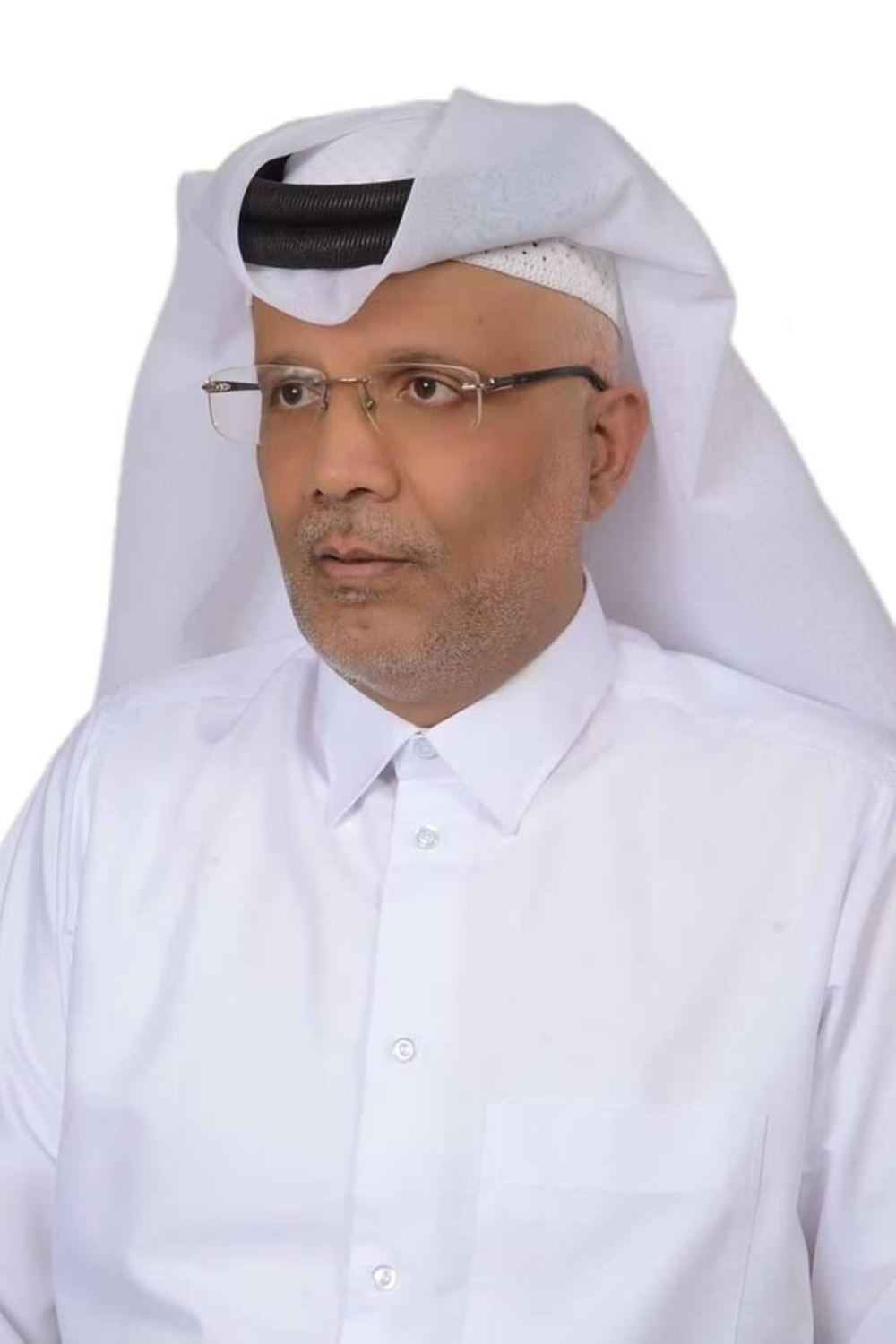
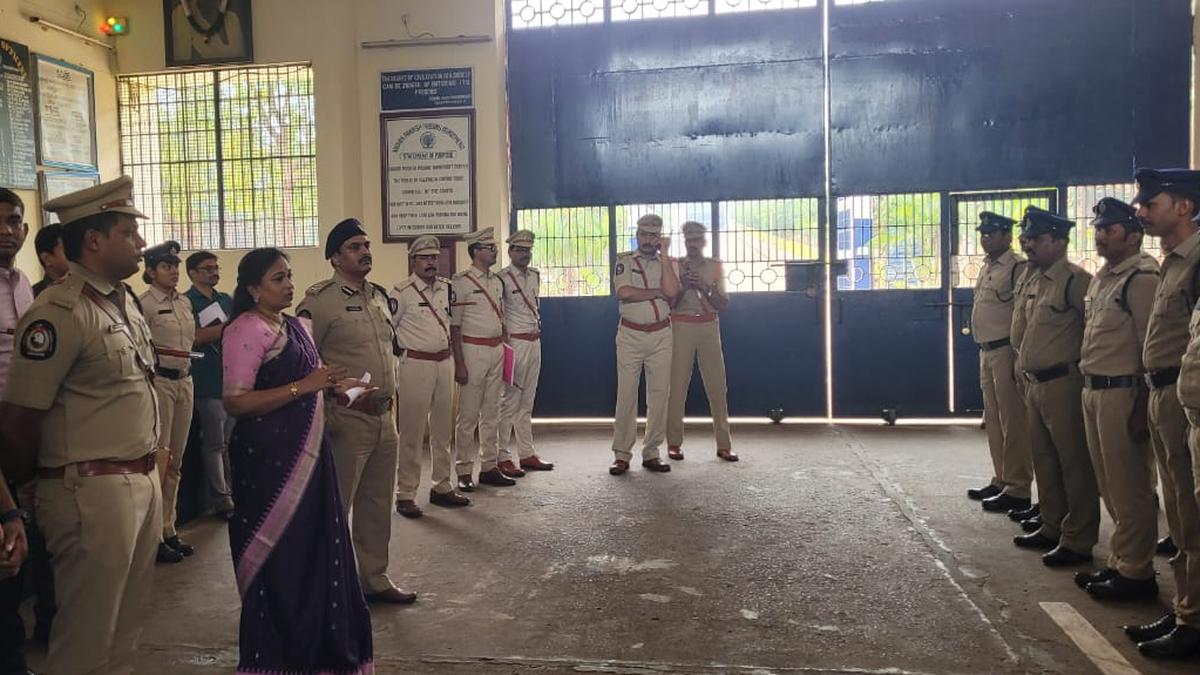





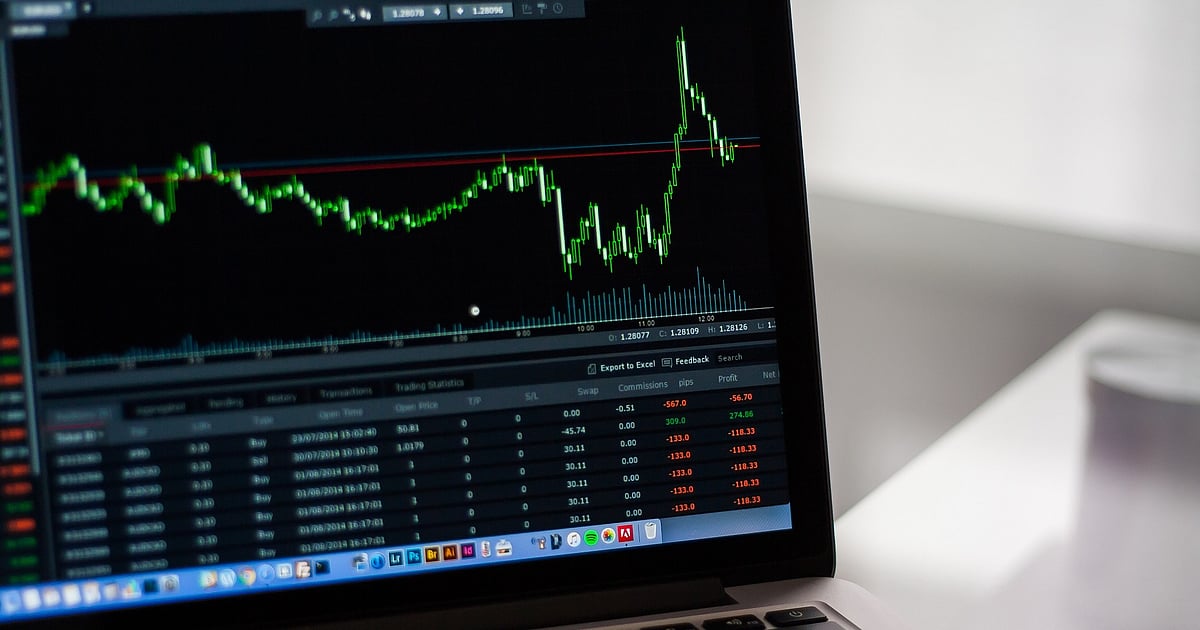 does crystal serenity have a casino
does crystal serenity have a casino





 does planet 7 casino payout
does planet 7 casino payout
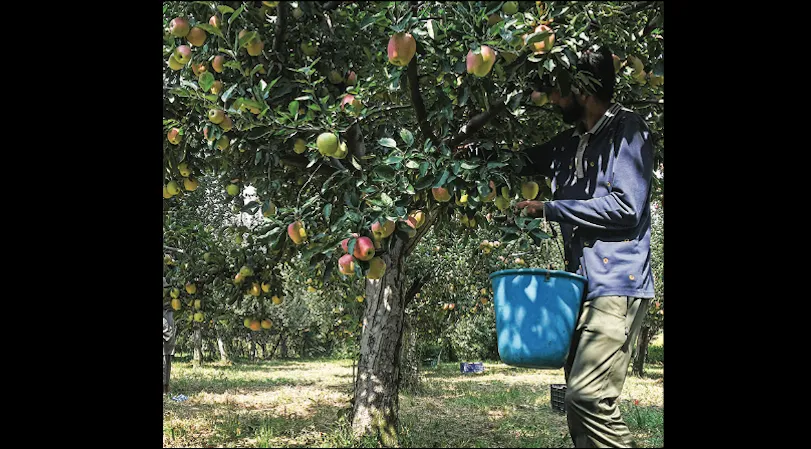




 is ace 10 blackjack
is ace 10 blackjack

